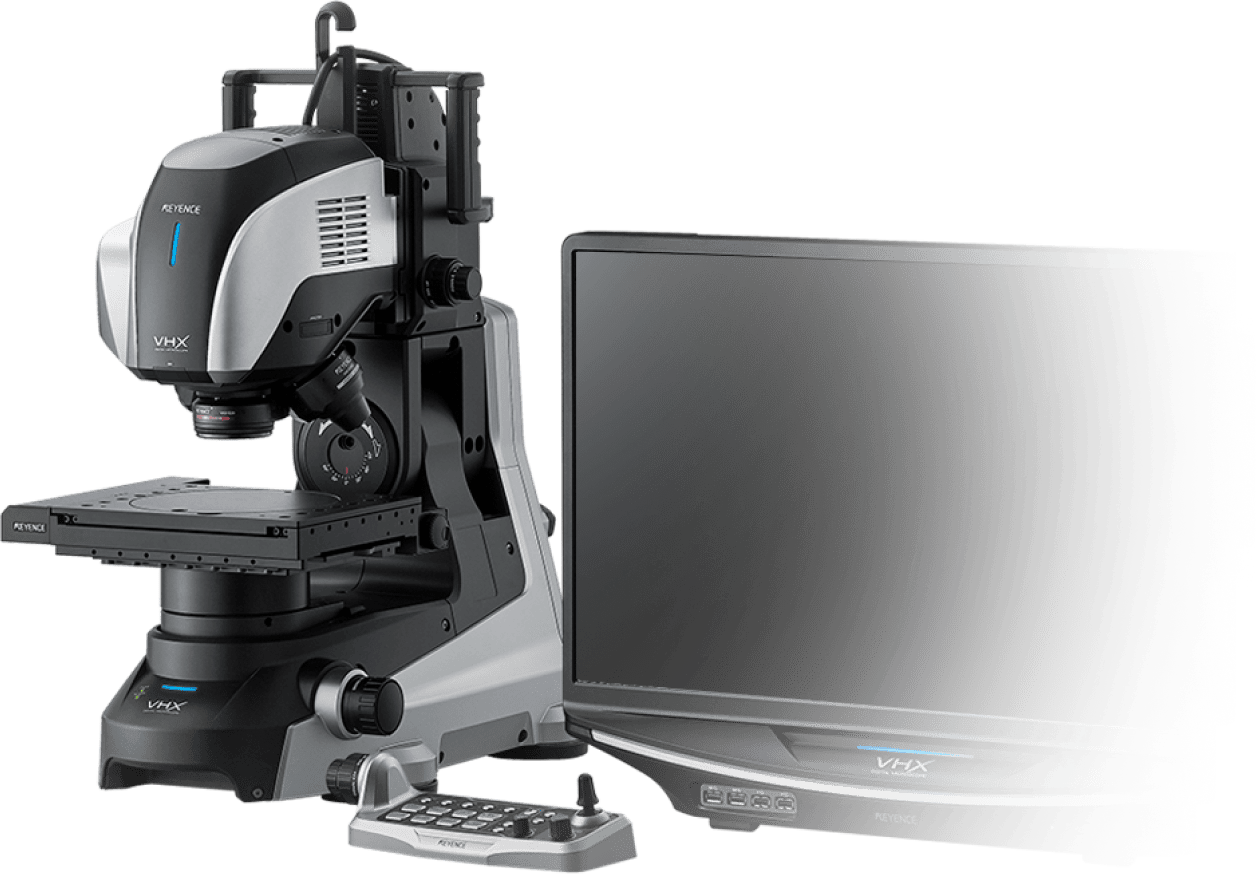Our Efforts to Provide Products to Our Customers
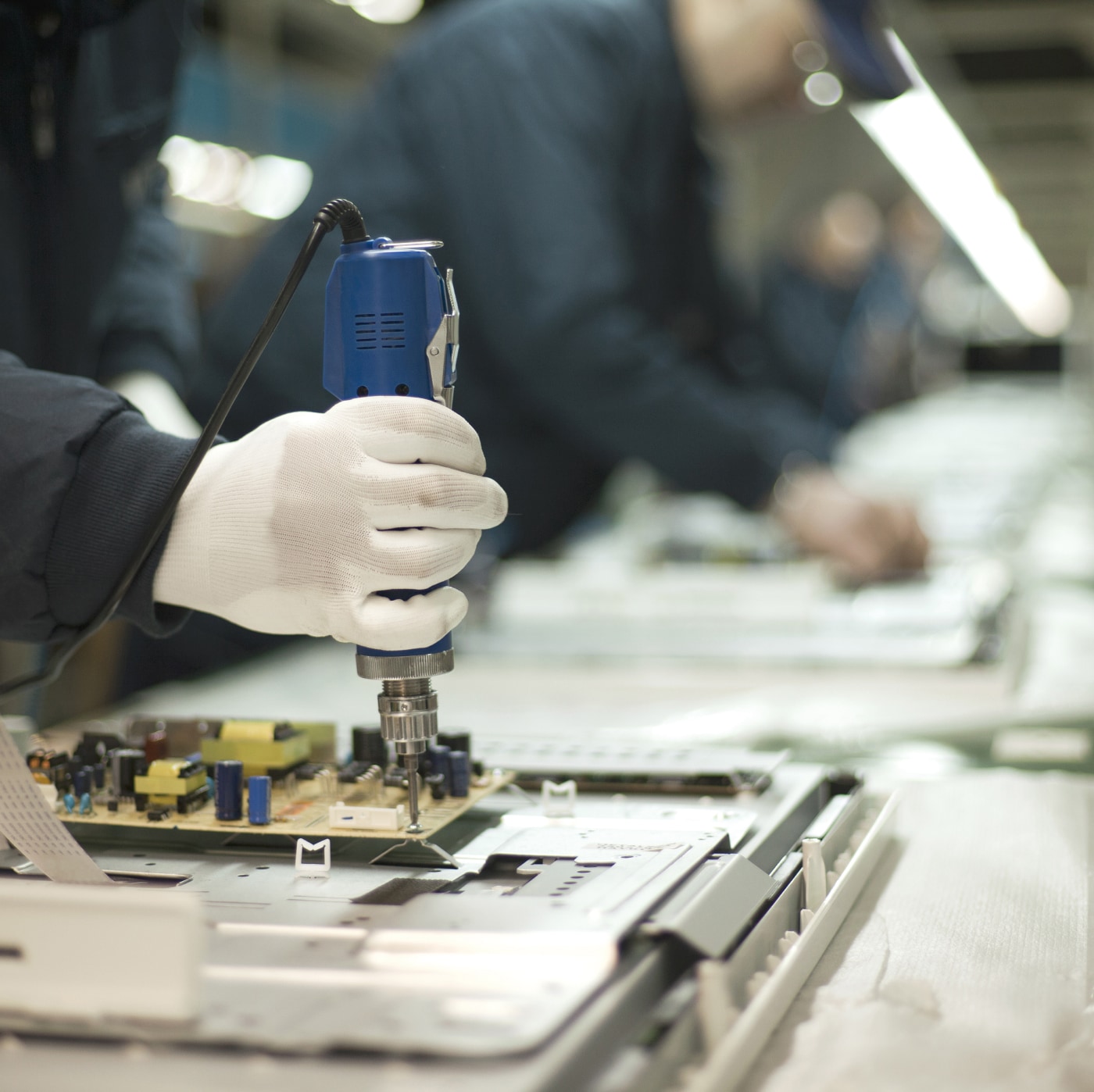
Although KEYENCE manufactures products using a fabless system in which we outsource much of our production to subcontract plants, we procure materials required for product planning, development, design and production.
Production is handled at subcontract plants around Japan, and our production technology, production planning and quality control departments cooperate with these plants and are building a system to manufacture quality products by being deeply involved with production such as by providing assembly drawings and supplying materials.
Produced goods are supplied from logistics centers in Japan directly to domestic customers as well as to overseas customers via distribution locations.
Procurement Guidelines

In order to ensure a workplace that takes human rights into consideration, we have established procurement guidelines for our supply chain, which include prohibition of forced labor and child labor and elimination of discriminatory treatment, and direct our suppliers comply with the Guideline.
In addition, as part of our basic business contract, we request that these suppliers make efforts to reduce their environmental impact and prevent environmental pollution for the purpose of environmental protection, improve the occupational safety and health environment, and respect human rights.
Procurement GuidelineGreen Procurement

The following efforts are being made to promote green procurement:
- We have established rules for environmental management and materials management and ask that our suppliers comply with these rules.
- We provide guidance on environmental management systems and confirm compliance through on-site audit and interviews with questionnaires.
- We request the submission of non-inclusion certificates for each component and the provision of information on substances contained in components using standard industry formats.
- We hold workshops on the environment as part of environmental education for our employees.
- We have built an environmental management system based on ISO 14001, and we are certified by a third-party organization.
Efforts toward Responsible Procurement of Minerals (Conflict Minerals)
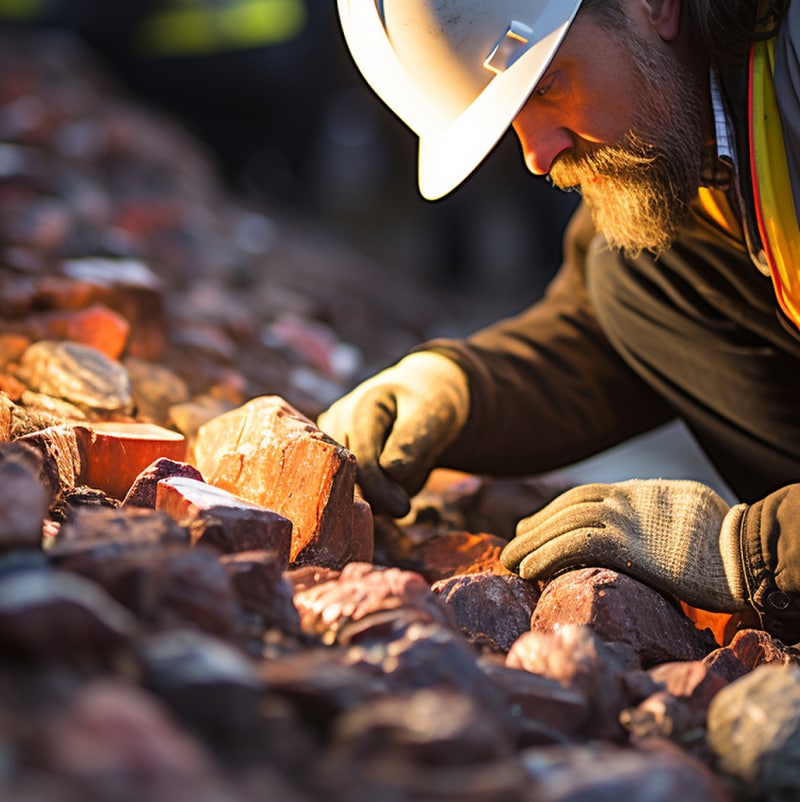
Minerals mined in the Democratic Republic of the Congo or in adjoining countries (Neighboring countries to the DRC) may be sources of human rights violations such as child labor, environmental destruction, and funding for armed groups, and may even contribute to the conflict itself. Our basic policy (*1) is to refrain from purchasing those minerals that have been illegally mined. In addition, the department in charge engages in working on risk reduction with the procurement department, such as conducting annual surveys with suppliers using the tools CMRT (Conflict Minerals Reporting Template) provided by the RMI (Responsible Minerals Initiative), which is an organization that promotes responsible mineral procurement. The survey we conducted found 363 smelters in our supply chain being on the Standard Smelter list of RMI, and 234 out of the 363 smelters (64%) are Conformant Smelters, who passed the RMI audit.
We will respect the OECD Due Diligence Guidance and continue to analyze and evaluate risks in the supply chain and carry out further investigations depending on the risks.
-
*1KEYENCE’s responsible minerals procurement policy
Minerals such as tin, tantalum, tungsten, gold and cobalt mined in the Conflict-Affected and High-Risk Areas, such as the Democratic Republic of the Congo or in adjoining countries (Neighboring countries to the DRC), may be sources of human rights violations such as child labor and environmental destruction, funding for armed groups and may even contribute to the conflict itself.
Based on OECD Due Diligence Guidance for Responsible Supply Chains of Minerals from Conflict-Affected and High-Risk Areas, KEYENCE is engaging efforts to eliminate such minerals illegally mined for electronic components contained in our products The risk-reduction actions we will promote with our suppliers’ respect for our basic policy are as follows.- We will continue to engage in the survey of the supply chain annually, using the tools CMRT (Conflict Minerals Reporting Template) provided by RMI (Responsible Minerals Initiative), which is an organization that promotes responsible mineral procurement.
- We will reduce the risk of the procurement of minerals from the point of view of the social responsibility, by confirming whether it is a Conformant Smelter that has passed the RMI audit in the list of RMI standard smelters. RMI(Responsible Minerals Initiative)
- *2 List of RMI standard smelters identified in our supply chain (PDF) click here
Digital Microscope
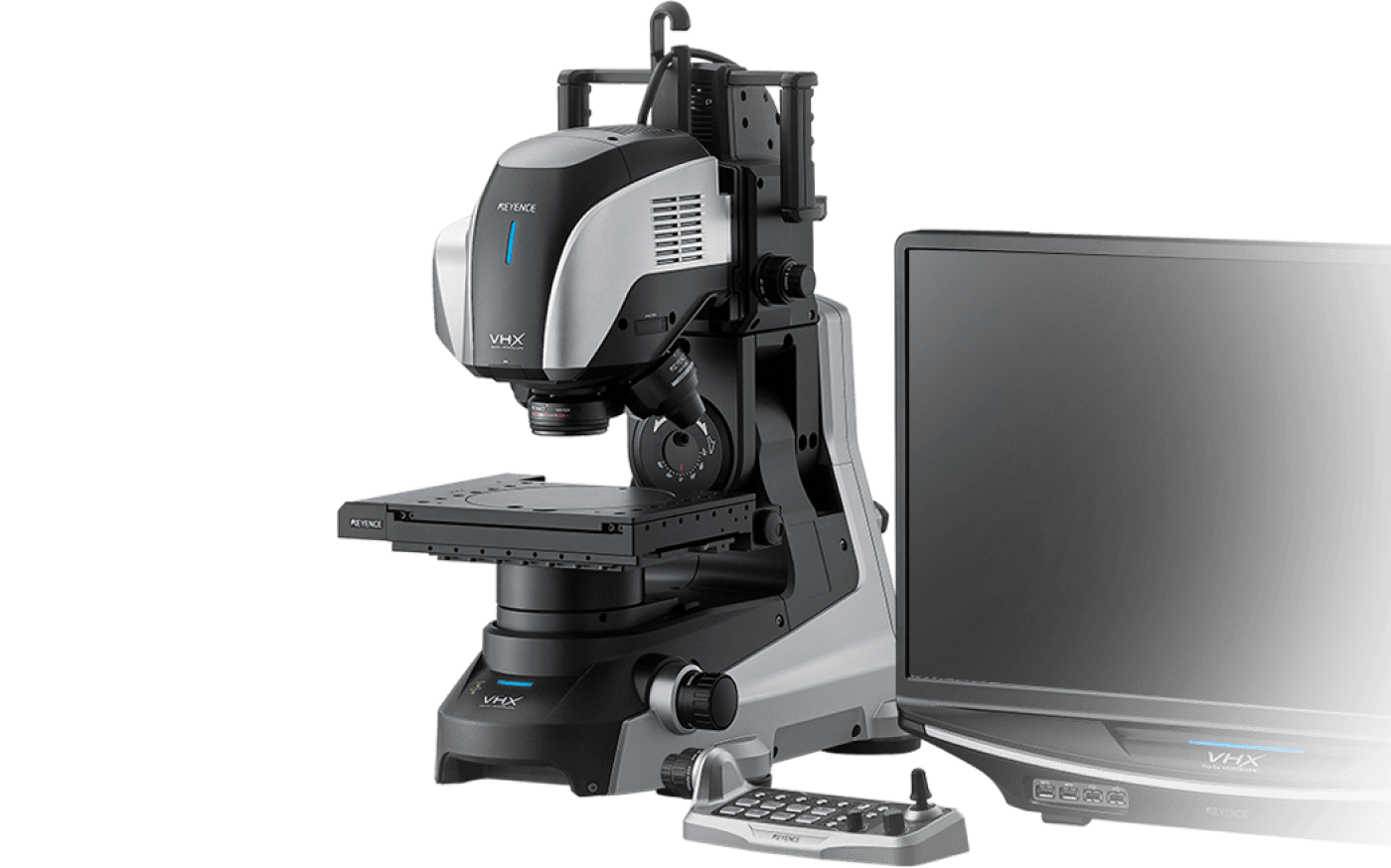
Supply Chain Management

We share and confirm our basic policy and rules with each subcontractor prior to outsourcing the manufacture of products, and request that they comply with the following items.
In addition, we conduct on-site inspection at subcontrators annually to check the status of compliance with the following items, and engage to ascertain the circumstances of manufacturing site and the improvements.
- Fair trade in compliance with the law
- Prohibiting forced labor (prohibition of forced labor against the will of workers, prohibition of collecting money (fee, deposit, etc.) when concluding a labor contract, etc.)
- Prohibiting child labor
- Prohibiting discriminatory treatment and harassment using one's status or position
- Protection of the right to freedom of association and collective bargaining
- Maintaining confidentiality
- Protecting the work environment
- Safety management
- Complying with local rules and regulations
- Complying with and maintaining standards and making efforts to achieve environmental policies
- Creating a workplace environment that ensure the greatest respect for human rights
We require our subcontractors to respect human rights and monitor their suppliers for compliance to our policies. We may terminate the relationship with any supplier if a breach is found, and if the breach is not rectified within a reasonable period.
Our Efforts to Maintain Same-day Shipping (BCP)
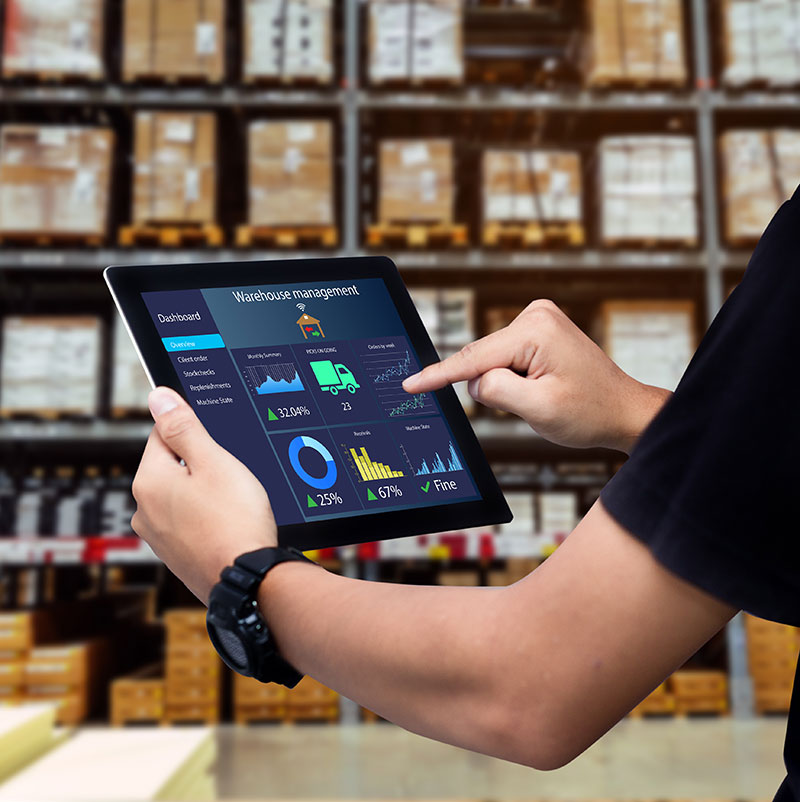
To build a system that allows us to maintain same-day shipping, we have implemented appropriate countermeasures against the effects of earthquakes, fires, flooding, large-scale system failures, and similar problems on our offices and workers, thereby allowing us to localize and rapidly counteract these effects and carry out our social responsibilities, including supplying products to customers.
- We have built a system that allows us to obtain the required parts in cooperation with suppliers according to the event that has occurred.
- Through fabless manufacturing, we have achieved a situation in which the distribution of manufacturing plants in various locations ensures continued manufacturing.
- We have investigated risks to manufacturing due to the characteristics of our manufacturing plants and facilities and have implemented appropriate countermeasures.
- We have stocked appropriate amounts of products not only in Japan but at our affiliates as well, allowing us to maintain a system for the global supply of products through the distribution of logistics bases.
